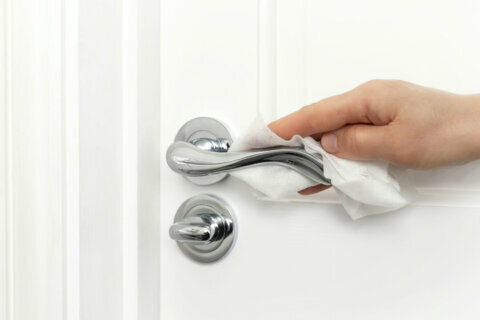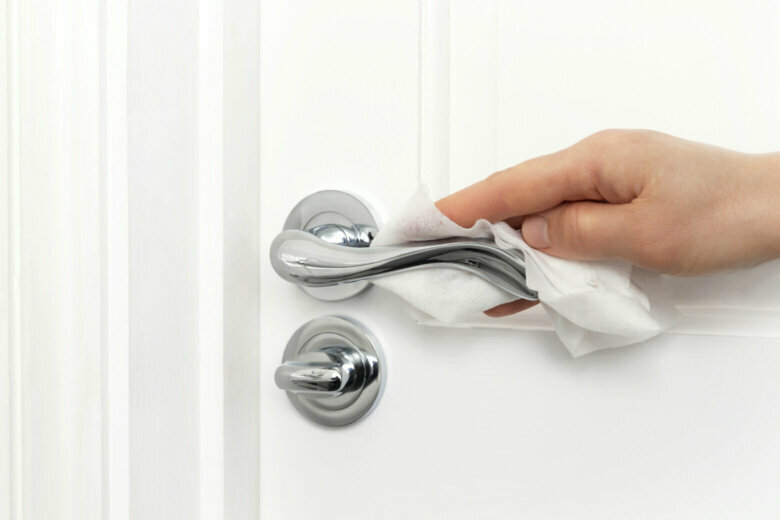This article was republished with permission from WTOP’s news partners at Maryland Matters. Sign up for Maryland Matters’ free email subscription today.

This content was republished with permission from WTOP’s news partners at Maryland Matters. Sign up for Maryland Matters’ free email subscription today.
Everyone knows the feeling.
You’ve soaped up, scrubbed your hands, dried off, and then … you’ve got to touch a door handle to get out.
“No ability to exit the bathroom safely,” Sen. Cheryl Kagan (D-Montgomery) said.
She has introduced a bill that would require medical facilities in Maryland to configure public restrooms in a way that allows people to exit without the dreaded doorknob touch on the way out.
Senate Bill 579 would require hands-free paper towel dispensers and a device that allows someone to exit without touching the door handle at all public restrooms in health care facilities by Jan. 1, 2023.
While hand-washing hygiene has become a bigger part of the public awareness since the onset of the COVID-19 pandemic ― cue humming “Happy Birthday” to yourself twice ― Kagan was inspired to write the bill two years ago during an emergency room visit.
While dirty doorknob encounters can happen anywhere, they’re especially troubling in health care settings, Kagan said.
“We’ve spent the last year wearing masks, social distancing, and being very mindful about not touching surfaces. And yet in our health institutions, in our hospitals and in our clinics, we are forced to touch surfaces that we know have been touched by people who are sick,” she told the Senate Finance Committee in a bill hearing Thursday.
Bathrooms can be a petri dish for disease, Kagan said, noting that flushing a toilet can send COVID particles from fecal matter three feet in the air, and that those particles can linger for up to 90 minutes later.
As a witness in favor of her bill, Kagan tapped Daniel Day, a microbiologist who posts video experiments uncovering contamination on everyday objects to his 1.1 million TikTok followers.
He told committee members that paper towel dispensers are preferable to hand blowers, which can suck in then spew out and recirculate harmful bacteria.
Kagan proposed door-opening solutions that could be high-tech (wave-to-open digital door openers, $200) or low-cost (ground-level foot pulls, $22.50).
Brian Frazee, vice president of government affairs for the Maryland Hospital Association, opposed the bill.
He said it is a top priority for the association’s members to have “hygienic conditions in all places of the hospital” and that there are existing state and federal rules for medical center bathrooms, including requirements for touchless hand-drying devices and liquid or foam soap dispensers.
Cost is also a concern for the groups that would have to undertake changes as part of the bill.
Other groups opposed the bill included the Health Facilities Association of Maryland and the LifeSpan Network, which represents more than 300 senior care providers in Maryland and D.C.
Frazee added that, during the COVID pandemic especially, hospitals also have hand sanitizer stations outside of restrooms and throughout medical facilities.
Kagan said the effective date of the bill was set for Jan. 1, 2023, in part to allow facilities to search for low-cost solutions.
In closing, she brought over a tradition from her committee, and invoked a pun:
“This is not a crappy bill,” Kagan said.
dgaines@marylandmatters.org








